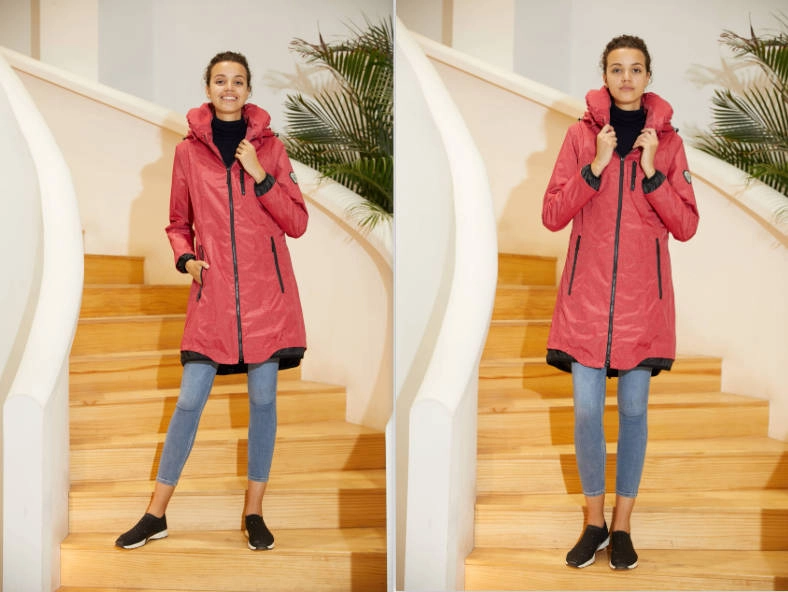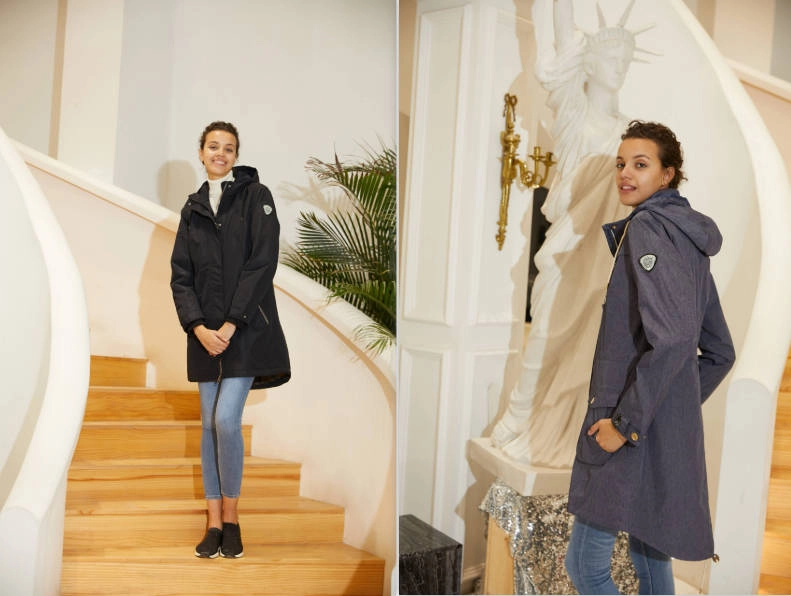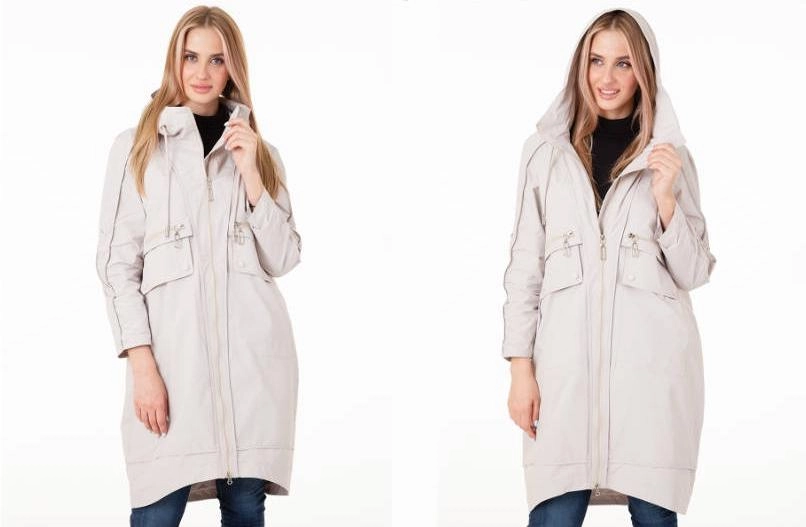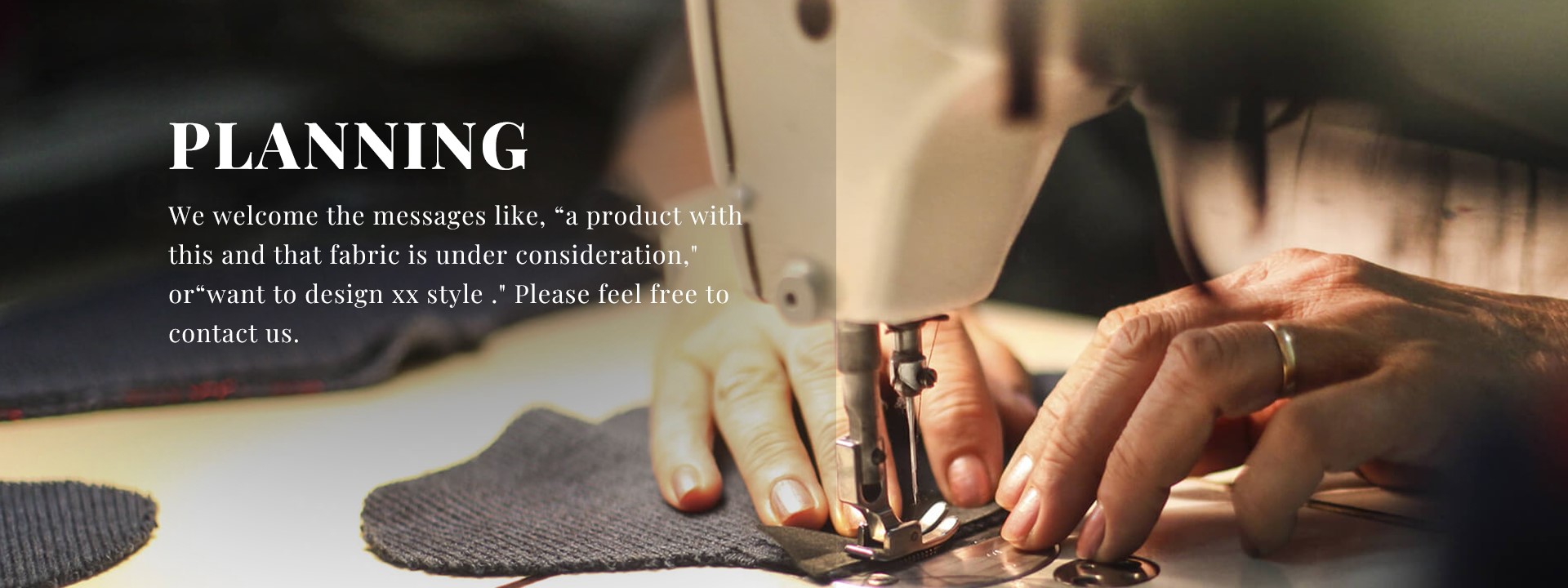Why Material Matters When Selecting a Reliable Rain Jacket

What Makes a Raincoat Essential?
The Importance of Weather Protection
Raincoats are key for keeping people safe from rough weather. Be it a light sprinkle or a big storm, rain jackets work as the main guard against getting drenched. They block water from soaking into clothes. This keeps you dry and comfy. This shielding is vital in places with tricky weather. Rain can come out of nowhere.
Balancing Comfort and Durability
A great raincoat mixes comfort with toughness. It needs to stand up to wet conditions and wear. But it should also feel light and airy for long use. Quality rain jackets nail this mix. They use advanced materials for strength and free movement.
Enhancing Versatility for Different Conditions
Today’s raincoats fit many places and tasks. From city travel to outdoor fun, they handle all sorts of needs. Their flexibility stands out. Things like adjustable hoods, lots of pockets, and removable liners make them more useful. They suit each person’s unique wants.
Raincoat Types: Materials That Matter
Common Fabrics Used in Rain Jackets
Nylon and Its Water-Resistant Properties
Nylon is a go-to for rain jackets. It naturally pushes water away. It’s light yet tough. This makes it perfect for outerwear that takes on heavy rain while staying cozy. Nylon dries quick, too. That’s a win in wet weather.
Polyester and Its Durability in Wet Conditions
Polyester is another popular pick for rain jackets. It doesn’t stretch or shrink when wet. It’s sturdy. It also keeps you warm. This helps during chilly rains.

Comparing Breathable vs Non-Breathable Materials
Breathable materials let air move while keeping water out. They feel more comfortable. Non-breathable materials fully block water. But they might trap heat and dampness inside. This can feel uneasy. Your choice depends on how you’ll use it and what you like.
Raincoat Styles: Tailoring Fashion to Functionality
Traditional Long Coats for Maximum Coverage
Long raincoats cover the most. They go past the knees. This guards more of your body from rain. Folks often pick them for fancy settings. Or when they want full cover over easy movement.
Lightweight Packable Jackets for Convenience
For those who like things easy, lightweight packable jackets are great. They fold into tiny pouches. You can toss them in a backpack or bag. They’re awesome for travelers or anyone needing a quick fix for sudden rain.
Sporty Designs for Active Lifestyles
Sporty rain jackets are made for active folks. They come with elastic cuffs, adjustable hoods, and fits that work with your body. These let you move freely for things like running or biking.
How to Choose the Right Raincoat for Your Needs
Assessing Weather Conditions in Your Area
Check your local weather when picking a raincoat. For spots with lots of heavy rain, go for fully waterproof materials. If you only get light showers, a water-resistant jacket made of nylon or polyester might do.
Considering Activity Levels and Usage Scenarios
Your activity and purpose should shape your pick. Sporty styles with breathable fabrics are perfect for active stuff like hiking. Long coats are better for commuting or outdoor gatherings.
Evaluating Fit, Comfort, and Mobility
A raincoat that fits well feels better and works better. Look for features like drawstrings or Velcro straps. These let you adjust the fit to your shape. Make sure the jacket lets you move easily without feeling tight.
Raincoat Features to Look For
Waterproof vs Water-Resistant Coatings
It’s important to know the difference between waterproof and water-resistant coatings. Waterproof fabrics stop all water, even in big storms. They often use seam sealing for extra protection. Water-resistant fabrics handle light rain but might not hold up in long, heavy downpours. Pick based on your weather and how you’ll use the jacket.
Ventilation Options for Better Airflow
Ventilation makes a raincoat more comfortable. Without good airflow, jackets hold in heat and moisture. This feels bad. Many designs add underarm zippers or mesh linings. These help air move. They’re great for active things like hiking or biking. They keep you dry and cool.
Adjustable Hoods, Cuffs, and Hems
Hoods, cuffs, and hems you can adjust to give a custom fit. They boost comfort and usefulness. Hoods protect your head and face in all kinds of weather. Velcro cuffs keep water out of sleeves. Drawstring hems make the jacket snug. They block wind and rain. These features make your raincoat work great anywhere.
Pockets and Storage Solutions
Raincoats with clever pockets give handy storage. You can carry phones, wallets, or keys. Look for waterproof or zippered pockets. These keep your stuff safe from water. Some designs have inside pockets for extra safety. These make rain jackets useful for everyday life.

Caring for Your Raincoat
Proper Cleaning Techniques Based on Material
To keep your raincoat in good shape, clean it based on its material. Nylon and polyester jackets can often go in the washer. Use a gentle cycle and mild soap. Advanced fabrics might need hand washing. Or use special cleaners to keep their waterproofing.
Storing Your Raincoat to Maintain Longevity
Store your raincoat right to make it last. Make sure it’s totally dry before folding or hanging it. Pick a cool, dry spot. A damp jacket can get mildew. This hurts how it works. Keep it out of direct sunlight for long times. UV rays can harm some materials.
Reapplying Waterproof Coatings
Over time, a rain jacket’s waterproof coating can wear off. This happens with use and washing. To bring it back, use a durable water-repellent (DWR) treatment now and then. Spray or wash the jacket with a product made to renew its water-repelling power.
Exploring INVIDIA Textile
Innovative Materials Developed by INVIDIA Textile
INVIDIA Textile is a leader in fabric technology. We make high-performing materials for rain jackets.
Advanced Waterproofing Technologies
INVIDIA Textile uses top-notch waterproofing methods. These give strong protection from water while letting air through. Our fabrics mix toughness and comfort. They’re great for city life or outdoor adventures.
Sustainable Fabric Options by INVIDIA Textile
INVIDIA Textile focuses on sustainability. We craft eco-friendly fabrics. These use green methods without losing quality or usefulness.
FAQ
Q: What material are most rain jackets made of?
A: Most rain jackets use nylon or polyester. These have water-resistant or waterproof qualities.
Q: Are breathable rain jackets better than non-breathable ones?
A: Breathable rain jackets let air flow while blocking water. They’re comfier. Non-breathable ones fully block water. But they might trap heat inside.
Q: How do I maintain my rain jacket?
A: Follow the maker’s care tips. Usually, this means washing gently with mild soap. Don’t use high heat to dry.
Q: Can I get custom-made rain jackets?
A: Yes! INVIDIA Textile makes custom raincoats. They fit your needs with top materials.
Q: What’s the difference between water-resistant and waterproof fabrics?
A: Water-resistant fabrics push away light moisture. They might not handle big rain. Waterproof fabrics stop all water.

 +86-13634185427
+86-13634185427




